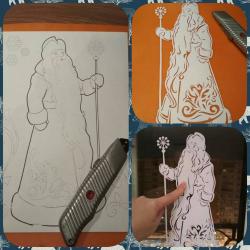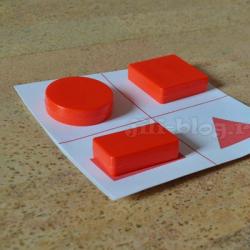Maternity hospital 4 what can be transferred. What you need to take with you to the maternity hospital: an exact list of necessary things for mother and newborn. From personal experience
Documentation:
- passport;
- medical insurance policy (compulsory medical insurance or voluntary medical insurance) (if you make a photocopy of your passport and policy, the maternity hospital staff will be very grateful to you);
- pregnant woman exchange card;
- referral to a maternity hospital (agreement with a maternity hospital or doctor);
- birth certificate (issued at the antenatal clinic, if not, it will be issued at the maternity hospital after childbirth);
- insurance certificate of state pension insurance (where SNILS is indicated).
Mobile phone and charger(if allowed).
Postpartum pad and shorts for fixation Increasingly, pads and shorts for fixation began to appear on mandatory lists for childbirth. If these items are not on your list and they are not useful in the maternity ward, then they will definitely be needed in the postpartum ward. After all, the baby may be born at night, and things for the postpartum ward will only be given to you in the morning.
Snack. Childbirth is a fairly long and energy-consuming process, so most women after childbirth have a strong desire to eat or at least drink a cup of sweet tea, sometimes doctors themselves recommend eating something. It’s great if, immediately after you are transferred to the postpartum ward, you can have a snack in the dining room or your loved ones give you gifts. But it may happen that the baby wants to be born at night, but the canteen is already closed and the package will only be delivered to you in the morning, so be sure to include a small but very tasty snack in your purse.
Cotton socks The experience of most women in labor suggests that due to a surge in hormone levels after childbirth, feet can become very cold, even if the room is warm, which is why socks for childbirth are included in most mandatory lists in the maternity hospital.
Things for dad. It should be taken into account that if you are planning a joint birth with your husband, you need to prepare things for the future dad. To be present at the birth, your spouse must have the following documents in hand:
All items should be pre-washed, ironed on both sides and placed in a separate bag.
To ensure that all the necessary things for the maternity ward are always at hand, they should be put in a plastic (washable) bag or a special transparent bag for the prenatal ward.
Taken from their website -
When applying for hospitalization in a maternity hospital, do not forget:
1. identification document - passport or military ID (if you are not a citizen of the Russian Federation, then you must have a notarized translation of your passport in Russian and a document confirming registration in the territory of the Russian Federation);2. compulsory health insurance policy;
3.exchange card;
4. birth certificate (if you have one);
5. certificate of incapacity for work (if you were issued one);
6. contract for childbirth (if you are giving birth for a fee);
7. referral for hospitalization from the antenatal clinic with all accompanying documents;
8. slippers (not fluffy, any washable);
9. compression stockings
10. You can take your mobile phone and player with you.
11. You can immediately take your baby to the maternity unit: a hat (cap), socks, mittens, a vest, rompers, diapers). Items must be clean, pre-ironed on both sides.
* If you make a photocopy of your passport and insurance policy in advance, we will be very grateful to you
You can't eat during labor, so you don't need to take food. If you wish, you can take only water, yogurt, chocolate.
Everything you need after childbirth, relatives will give it to you later, but you can prepare in advance:
* postoperative bandage (if a caesarean section is planned);
* sanitary pads (maxi);
* disposable panties (reusable ones are also possible, but they will have to be washed);
* a package of diapers for a child from 3 to 6 kg;
* cream against cracked nipples;
* toiletries (toothpaste, brush, comb, shampoo, soap in a soap dish, face and body cream, necessary cosmetics, etc.);
* paper and pen to write notes or diaries;
* in our maternity hospital you are allowed to use dressing gowns, pajamas, and towels;
* if you have not prepared things for the child in advance, then everything you need will be given to you at the maternity hospital.
So, now I’m thinking - isn’t it time for me to unload my trunks - I’ve already got so much stuff... And combs, bottles, and towels, clothes, and... to hell, in general, everything...
Hello! In mid-August of this year, the most striking event of my life happened - I became a mother. Therefore, I want to dedicate my first review to the place where this happened - the 4th maternity hospital. I will share with you the details of your stay and the state of the maternity hospital as a whole, as it was in mid-August 2015. A detailed report with personal impressions, a list of things plus photos are waiting for you below)
Why did I choose the 4th maternity hospital?
Firstly , my doctor advised him, emphasizing that the maternity hospital is supported by the Moscow government, there is modern equipment and the best doctors. Give birth with confidence!
Secondly , the main criterion of a maternity hospital is safety. There is a pediatric intensive care unit, a blood transfusion service, all the necessary medications, etc.
Third, bribed by good reviews and information from the official website.
One of the leading medical institutions that provides obstetric care
Leading? Oh, that suits me. Well, my love, I won’t give birth anywhere.
Maternity hospital No. 4 takes place about 9 thousand births a year, which is more than 6% of all births in the capital
There are about 40 maternity hospitals in Moscow. If you do the math, it turns out that the load is almost 2.5 times greater than in the others. And in recent years, the number of women eager to give birth here has been growing. So why do pregnant women run a race on their swollen paws in order to writhe in pain, swear, bleed and give birth here. Well, let’s check on our own skin what the first birth is and what a miracle this 4th maternity hospital is.
Contract
From the very beginning we decided to pay for the birth. I needed a 100% guarantee that I would give birth here. Therefore, at 34 weeks of pregnancy, my husband and I went to sign a contract. It was about five in the evening on Friday. The security guard very politely explained how we could find the reception desk. There was almost no queue at the registration desk; there were two offices: in one there was a cash register, in the other they made appointments and concluded contracts. The receptionists are also polite. Polite receptionists, Karl! In general, everyone there is polite to the point of nausea. Everywhere has been renovated and is clean. Before concluding a contract, you need to go through doctors: a gynecologist, a psychologist, a therapist and an anesthesiologist + do an ultrasound and CTG (I had fresh ones on my hands, so I didn’t take them). If suddenly you have some health problems that may lead to difficulties during childbirth, then it is not a fact that they will sign a contract with you =) They have enough of their own problems.
Since we arrived at the end of the working day (especially Friday), we could not get past the doctors. We got an appointment for the next day. On the eve of appointments, you always receive an SMS with the date, time of appointment and the name of the doctor, which is very useful for absent-minded pregnant women and their equally absent-minded men. They saw all the doctors quickly, there were no queues anywhere, and they signed a contract with the team on duty. Unfastened 89.600. By the way, doctor’s appointments are not included in this amount; you have to pay for them separately (about 1k), as well as for subsequent appointments with a gynecologist, to whom you need to come every 7-10 days with the results of a CTG and the results of a urine test (everything can be taken right away ). CTG costs 700-800 rubles.
When concluding the contract, I received insurance in the amount of about 400 thousand. Now it’s clear why contracts are concluded not with everyone, but exclusively with “healthy” ones ^ ^
We were given a folder with documents, doctors' reports and a reminder of what things to take to the maternity ward.
And now the most interesting part: childbirth
The maternity hospital is glad to see residents of Moscow and the Moscow region within its walls. You can get to the maternity hospital if you have a compulsory medical insurance policy, along with an ambulance
Of course they were lying here. I immediately imagined: I was lying in the last stages of pregnancy at home somewhere in Balashikha and then I realized, “I’m giving birth!” I call an ambulance, they come and I, poking the policy in their faces, hand over my suitcases and bags and command “Carrier, drive to the 4th maternity hospital!” And they, blaring a siren and winking with a flashing light at the angry drivers, brazenly push through the traffic jam to the 4th maternity hospital. The ambulance will not take you to this or that maternity hospital at your request, especially if it is busy, they have their own clear instructions - if any house is overloaded, take you to the nearest unloaded one. The girls told me I’m not a gossip even once - even if you stomp on your own during irregular contractions, they can give you a referral to another maternity hospital. But there will always be places for paying people. The contract is subject to consumer protection law.
The maternity hospital is set up for natural childbirth and the priority is the life of the child. Initially, I was planning on having an ACL because of my narrow pelvis, but the gynecologist said “you’ll start giving birth yourself, and then it will depend on the situation.” This is where it hit me! I was very worried about childbirth, I read how it started for everyone and mentally prepared for the waters, contractions, pain, etc. I had a quirk - I wanted to start giving birth in the morning. I slept constantly because I was afraid of not getting enough sleep during childbirth.
My labor was quick, I was in labor for less than 6 hours, it’s hereditary for us - what’s in the gene, you can’t knock it out with a log. We arrived at the maternity hospital at about 9 (as ordered) “in the morning” with bloody discharge (I haven’t read about this =) at 39 weeks and 5 days, as it turned out, the mucus plug was coming off. They examined me in the emergency department and decided to observe for 6 hours . Here, too, everyone is polite and polite, they made fun of me and encouraged me. They immediately took a blood and urine test, changed me into a fashionable shirt. By the way, they did an enema and epilation of my intimate area. I had sugaring done in advance. Mild contractions began, and they sent me to the hospital. Ultrasound. I wrote above that almost all the staff were polite and courteous, but the ultrasound doctors were all kind of shitty.
Here, too, everywhere is clean, but there are a lot of people, the girls were lying in the corridor. They couldn’t immediately place it in the paid block (it was busy), so they put it in the regular block for 15 minutes. Here they examined me, connected a CTG, and measured my blood pressure. During these 15 minutes they came to me 3-4 times, asked how I was feeling, and apologized for the inconvenience. The staff is friendly and polite.

The difference between a “VIP” block and a regular block is available beds, at the time of childbirth, transformable into a chair (in a regular block there is a separate bed and a separate chair, to which you still need to manage to crawl at the right moment), TV(a very “necessary” thing during childbirth) and "jacuzzi", some kind of equipment and footage.
I didn’t like the lack of a toilet, although I understand perfectly well that it’s not great for women in labor to jump to the push and back, but I personally wasn’t happy with the vessel.


The doctor and midwife visited me one at a time or together every 10 minutes. The contractions were painful, the doctor periodically massaged the lower back. Then I regretted that I didn’t take my husband with me, he would have massaged me and distracted me. On the other hand, I didn’t want him to see all this. My blood pressure was measured several times, CTG was recorded almost throughout the birth, only at the end I asked to be disconnected, it seemed to me that there was a lot of pressure on my stomach.
The contractions were painful, the dilatation was only 2 cm, the doctor said that it was too early to relieve the pain. But after 5-10 minutes the contractions became so intense that I was whining, he met me halfway and invited an anesthesiologist. Thank you, kind man! The anesthesiologist came about 5 minutes later and clarified some aspects of the medical history. Phew, what a relief! I still remember that reverent chill of the anesthetic running down my back. I almost didn’t feel the contractions, I lay there, happy and content, relaxing for an hour, the doctor examined me again and said that I was already fully dilated. They pierced the bubble and the waters turned out to be green... That's the twist. A young trainee constantly went with the doctor (I drew this conclusion because he constantly explained everything to her and commented on his actions) and reluctantly watched his manipulations. I remembered the days of studying at the university, when we spent days in hospitals and after 2 hours of being there, the only thought was to go to the canteen. I read the same thoughts on her face.
The anesthesia wore off and there was a fried smell in the air - my butt was slightly smoky, and I lay there and couldn’t do anything about it. No matter how much I begged later, they did not add anesthesia so as not to harm the child. What followed were 3 hours of hell. Periodically, a midwife and a doctor came and told me how to breathe correctly. RIGHT? Yes, after anesthesia, I could hardly breathe - it was terribly painful for me to inhale! I couldn’t hold my own legs either, I could only pull one up. Half-cooked chicken pose. The contractions intensified every 10 minutes, it felt like they had lit a huge fire under me and were roasting my puny carcass, rotating it on a spit. There are no words that can describe the pain of childbirth. Women's screams could be heard from the neighboring blocks and corridor. At that moment, I was sincerely surprised how they even had the strength to shout throughout the entire corridor, swear, kick doctors, and for some even bend the metal bed rails? I couldn’t move, I lay quietly and dreamed of dying quickly. I don’t know what this pain can even be compared to. It was as if a giant had stepped on my stomach, I was stuck to his leg, and with every step he stepped on me and pressed me harder and harder, and I was waiting for the next step to finally crush me. It seemed to me that something was going wrong. But the staff was reassuring. The only thought was to end this torment, I wanted to die, just to no longer feel this pain.
In the next block, the girl was in the last stage and therefore most of the staff focused on her. For about 20 minutes there was such a hubbub of “Push!” "Breathe!" and “Aaaaaaaaaaaah!” But they didn’t forget about me, they visited me often, and I didn’t feel a sense of abandonment. I didn’t have the strength to push, so I asked about a caesarean section. Fuck me, continue to suffer. After the girl finally gave birth, the team moved to me, the trainee also decided to look at my pitiful attempts. If you poked a fork at me, I wouldn’t even flinch. We pushed - the doctor said that he would use a vacuum, since I was not pushing. FUCKING PUSH YOURSELF! I felt like my eyes were bursting, but he said, “Don’t push!” The midwife held her legs, the trainee held her head. I was holding… I don’t remember what. Everyone describes a crowd of people in the block; next to me there was a doctor, a midwife, a trainee and a neonatologist, I wouldn’t say there were so many people. Maybe because of the larger footage? There were exactly three attempts. On the second, they did an episiotomy (I didn’t even feel it), and after the third, my daughter was already in the midwife’s arms. They wiped her down, measured her, weighed her, and let me cut the umbilical cord (I didn’t ask, but it was nice). By the way, the umbilical cord is cut after the pulsation stops. The anesthesiologist came and here it was - the long-awaited chill down the back! They stitched it up for about 20 minutes. They wrapped my daughter in the clothes that I brought with me, in diapers and a blanket and handed them to me. We lay and hugged for about an hour. After 2 hours, a happy husband arrived, it was his turn to hug his daughter) They brought me delicious borscht and a cutlet with a side dish. It was very helpful after giving birth))
Accompanied by my husband, with my daughter in her arms, the midwife took me along the corridor of the maternity ward, where women with contractions lay on beds along the walls and watched me with long, envious glances, and I was so cool, I gave birth! I was very proud of myself. We were taken to the 4th floor and left to get comfortable in the ward.
Service +
Cleanliness in the block +
Bed (chair) +
Bathroom -
Price/quality +
Postpartum
The ward upon first inspection did not look like a ward, rather like a standard hotel room. There is a refrigerator, a TV (the remote control worked every once in a while, I never got the batteries, I had to take the remote control from the girl in the next room), the bed is very high, but there is a footrest to make it easier to crawl onto the bed (this is very inconvenient, since you have to jump to the baby very often, and the seams only complicate the process), a table, two chairs, a bedside table, a changing table, a cuvette for the baby. The blinds on the windows came in very handy - they protected us from the sun and from the eyes of curious people living in the apartment building next door. From the window there was a view of residential buildings, all the asphalt under the windows was scrawled with thanks for their son, daughter, and kidney. Yes, yes, someone thanked his wife for a kidney (the inscription is old, the letter “d” is a little worn out)
There is a panic button. Wi-Fi 24 hours a day. There is no breast pump on the (4th) floor!
When leaving the “room” we find ourselves in a common room for the block (there are two rooms in the block) with a sink, a mirror and two containers for baby diapers and diapers. On the sink there is liquid soap and two stands for baby soap (soap for washing the baby was given separately). Shower room on the right, toilet room on the left. There is a supply of toilet paper in the toilet, but there are no disposable seats, and there are two of us in the block. The details of the mother and baby are written on the door of each room. Everywhere is clean, there is no musty smell like in the 10th maternity hospital. Cleaned every day.
Food is brought to your room. It was a little confusing that we were periodically fed foods that were not recommended for our “nursing” diet. But everything was delicious! Even for me, who is still picky.






After checking in, we were visited by doctors. They talked about how to care for the child and about vaccinations and tests, and told me to use the instructions on the table.

I regret that I strictly followed the memo... The memo stated that every 2 hours you need to check the diaper and feed the baby. Now I understand what a fool I was. Every 2 hours (on the alarm clock) I got up and took her to the changing room to change the diaper and tried to attach it to the chest, which she stubbornly did not want to take, in the end it all ended in screams. They caused blood to flow in my ears at the speed of light. I didn’t sleep and with my actions I woke up the baby. Oh yes, all movements were accompanied by pain (the anesthesia had worn off), I walked like a zombie from The Walking Dead. And yes... only then did I realize how cool it was to sit on my butt! I didn’t experience this buzz after giving birth for a whole month.
The “children’s team” comes twice a day: in the morning the child is weighed, examined, and placed in the chest. On the very first day they brought a bottle of water and a spoon, we drank well) but I had problems with latching: the baby stubbornly did not want to latch on to the breast, she only took it for a few seconds when the nurse applied it. Every time they visited, they had to show me how to hold the baby, breasts, etc. But there was no point, even though I did everything right. I honestly applied the first squeak. She licked the colostrum, but did not suck. The second night I jumped around the ward with her like a saiga in the garden. On the third day, after yet another assistance in applying, they irritably uttered the phrase, “So are we going to learn to apply? It's time! And teach the child!” Then they brought me the mixture. We ate 10 ml of the mixture, she vomited half of it, and then I got really upset... Then they brought me a pacifier. It turned out to be tastier than breast. I drank water with her help. At night, tired from wandering around the ward (it was still heavy on our feet without the opportunity to sit down), we lay down, I offered my breasts as always and didn’t even expect that she would want it, but apparently hunger took its toll and the leech latched on so that after 50 minutes I had to unhook it. The problem would have been solved easier if I had taken a silicone breast pad with me. Of all of them, I really liked the young doctor - she examined me from all sides, got into every hole during the examination. On the 4th day, blood was taken from the heel to screen for genetic diseases. An ENT specialist and an ophthalmologist also came, examined, left conclusions and their contacts =) Another doctor came in, offered comprehensive monitoring programs for the child, and handed out brochures. The prices for these programs are a bit steep...
The obstetrician-gynecologist examines the stitches, palpates the abdomen, and questions. Later, a treatment nurse comes in and cleans up the stitches. For free patients, as I understand it, the stitches are processed not in the ward, but in the treatment room.
On the 4th day I had an ultrasound. The uzistka was not the same as on the day of birth, but also extremely shitty. Are they casting for these? She muttered that “not good.” She didn’t answer my question, she barked to get ready faster (stitches, whimper, whimper). Later the doctor came and I was in danger of being purged. Cleaning was done WITHOUT anesthesia, manually. It was painful, after childbirth the sensations were strange, blurred, but it definitely HURT. The doctor kept saying “it can’t work”, took out her bloody hand, stuck it back and continued to torment me, I endured it and tried not to twitch. As a result, the doctor was (or it seemed to me) dissatisfied with her work. It was not very pleasant, the procedure left only negative impressions, the picture was complemented by the floor of the procedure, completely covered in my blood... After this, my neighbor and the barmaid spent a long time calming me down.
The next day, another ultrasound. “Woof-woof” grumbled for us to move faster. Try jumping on the couch and back with a dozen stitches! I was tempted to ask if she liked her job. They discharged me on the same day, handed me a bunch of papers, questionnaires, advertisements and a bag of gifts. When asked about pumping, they said that everything was in one of the pieces of paper. No one bothered to show or tell in detail.

Total for postpartum:
Service +
Cleanliness in the room +
Bed -
Bathroom +
Price/quality +
Attachment to the breast and pumping -
Extract
Checkout is carried out every day. The procedure is as follows: greeters come to the reception department, check in, and give the name of the person they are meeting. Check-out is carried out by floor, each floor has a certain time. My relatives waited for me for a long time... It’s better for Mom to get ready in the ward, since there won’t be time for discharge. Everything happens very quickly, there are a lot of people. I fed the baby in advance, changed the diaper and put him to sleep) The midwife comes, takes the baby, the mother puts her things in a ditch and the whole procession moves to the first floor. I changed clothes there (my husband immediately handed over my things), the midwife dressed the child.
If desired, the maternity hospital organizes a ceremonial discharge: balloons, bows, limousines, buffets. Who cares, I had no time for that. I wanted to grab the baby and quickly run home.
Are you here now? Left a little)
List of things for childbirth in the 4th maternity hospital + necessary things for the first time.

Things needed in the birth block , fit into a transparent cosmetic bag that came with the bag.
- Documentation
- phone + charger
- 2 bottles of still water (bottles with sport neck)
- regular rubber flip flops and white socks
- compression stockings (I opened the pack, but didn’t have time to use it)
- toilet paper
- paper tissues and wet wipes (I'm a tissue maniac)
- HYGIENIC! A very necessary thing during childbirth
- “Naphthyzin” (my nose has been constantly stuffy in recent weeks)
- A slipper and a hat for a child, socks. By the way, they write that the hat is needed without strings, I took it with strings, and they put it on
- A pair of diapers
In the postpartum I took a little, but this minimum can be reduced
For a child:
- 2 slips - I gave birth in the summer, so bodysuits were not useful. If you give birth in cold weather, then take 2 bodysuits. I consider baby vests and rompers to be very uncomfortable things; they just clutter up my chest of drawers.
- Socks, scratches and a hat
- A pack of diapers. I took Pampers and Merries. It’s better to take several different ones, in case the child has an allergy.
- “Toothpicks” weren’t useful either, I was afraid to put them in my mouth
- Cotton swabs “Pigeon” are a necessary thing to clean your nose and ears, especially after childbirth
For mother and child:
- Thermal water "Avene" was very helpful
- Wet wipes "Goon". “Kleeanex” turned out to be superfluous, one pack of Goons is quite enough for both the child and the mother
- Liquid soap "Babycoccole". I used it to wash the baby and wash myself, it will come in handy if I need to wash something
- “Bepanten” for the nipples, for the baby’s skin and... it’s a jam) (there’s no point in dragging around a bag of tonic foams, etc., there’s no time for that in the maternity hospital, I foolishly picked up various creams, only the serum was useful, “Bepanten” handled the rest) )
- Disposable diapers (for convenience and personal comfort, you can do without them)
For Mom:
- “Pigeon” breast absorbent inserts were NOT useful in the maternity hospital (milk started leaking at home)
- Panties "Molipants" are very comfortable, "Peligrin"
- Postpartum pads (according to the results of a personal test, the Helen Harper postpartum pads won, with Libresse Natural care in second place - they are soft and do not rub the seams, for those who have had episiotomy)
- 2 towels: large and small
- I poured the shampoo into a small jar
- Toothpaste and brush
- Cotton pads
- Socks
- Robe, shirt (optional). It was more pleasant for me to walk in my
- Cosmetic bag (minimum cosmetics plus comb)
- Bandage (I didn't need it)
- You don't need toilet paper, it's there.
- Unscented deodorant “Deo ice”



I would also take a pacifier and silicone breast pads with me
If you suddenly need something, your husband or relatives can give
So, the maternity hospital is good, almost everything is at the highest level, it doesn’t smell like Soviets, the staff is polite, they know their stuff, the living conditions are decent. The daughter was born healthy, without birth injuries. But one star I still I'll take it off due to subjectivity. Firstly, during childbirth I ungodly tore, it is difficult to say whether this was due to improper management of the birth by the midwife, or my narrow pelvis. Secondly, my beloved was in pain both during childbirth and during cleaning, and I understand that this is childbirth, and not stroking the cheek with a feather, but I thought that in our time they still give some kind of minimal anesthesia. Thirdly, and this is the most significant disadvantage, they did not teach me how to express by hand, I suffered with mastitis and a temperature of 40, until a kind aunt from the nearest private clinic showed me how to express by hand. After giving birth, I lay in bed for a month, getting up only when necessary and when I had to go for phonophoresis.
Thank you all for your attention! All the best, love and healthy children!
: I also read quite a lot of reviews about the maternity hospital, but questions still remained - how and what it works there.
Let me make a reservation right away: my story is for those who are giving birth. for free, And - I deliberately do not touch on medical issues, because this is pointless - you won’t read a review about YOUR birth anywhere anyway.

So, let's go to the maternity hospital.

The first thing I want to say is don’t be too lazy to collect everything. There is no need to justify yourself: “Come on, it’s only for 3 days anyway! We’ll get by somehow!” According to my observations, indeed, 90% of mothers go home on the 3rd day, but 10%, completely unexpectedly for themselves, stay for another 2-3-4 days....

All things - not heavy and small - get yourself together properly - then you will say “thank you” to yourself!

We arrive at the maternity hospital during contractions.

1) There is an opinion that the later you arrive at the maternity hospital, the fewer evil and nasty doctors will inject you with harmful, harmful injections. This is definitely not about the 4th maternity hospital! No one is waiting for you there with a syringe. Believe me! It’s better to come when the pain has not yet become unbearable - because... upon arrival, you will be forced to write here, here - to sign five times, here - to write down your address, go through another ultrasound, and so on......

2) They will take you to the reception area and change you (they will give you a shirt) - warn your husband (or the person accompanying you) that he should not give in as soon as the door closes behind you! - his task is to take away all the clothes and shoes that you were wearing and documents (originals - passport and policy).






